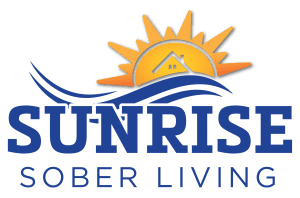Life After Rehab: Men's Halfway House in Nashville
Transitioning from rehab back to normal life is a significant step on the path to recovery. A halfway house serves as a vital bridge, offering a structured and safe haven for men seeking to reintegrate into society. With a focus on personal growth and sustainable sobriety, these facilities provide comprehensive programs tailored to address the unique challenges faced by individuals in recovery. After a long road of substance abuse, embracing a fresh chapter of recovery comes with excitement yet extreme challenges. It’s important to find a dedicated facility and team that is purposefully designed to provide the resources, support, and guidance necessary for a successful transition.
What are Halfway Houses?
A halfway house, also known as a sober living house or transitional living facility, is a structured residential environment that provides support and guidance for individuals who have completed a rehabilitation program for substance abuse or other challenging life situations. It bridges life from the tight structure of a rehab facility and the return to independent living.
Halfway houses offer a safe and supportive space where residents can continue their recovery journey while gradually reintegrating into society with people who have been through the same motions. They often provide a community atmosphere amongst residents with similar experiences and goals. The primary objective of a halfway house is to help individuals establish a stable and healthy lifestyle, develop essential life skills, strengthen their support networks, and increase their chances of long-term success in maintaining sobriety and overall well-being.
Why is it Called a Halfway House?
The term “halfway house” originates from the idea that these facilities serve as a transitional step between the structured environment of a rehabilitation center and independent living. Residents are considered “halfway” between their old lives of addiction and their new lives of sobriety.
While individual still receive support and guidance from staff and peers, they are also granted more personal freedom than in a traditional rehab setting.
What Does It Mean When Someone Lives in a Halfway House?
When someone lives in a halfway house, they reside in a structured and supportive residential facility that serves as a transitional living environment. This typically occurs after completing a rehabilitation program or when individuals transition from a controlled treatment setting to independent living. Living in a halfway house often involves:
- Following specific rules and guidelines, such as maintaining sobriety.
- Participating in counseling or therapy sessions.
- Attending support group meetings.
- Contributing to household responsibilities.
The ultimate goal and purpose of a halfway house is to provide individuals with a safe environment that supports their ongoing recovery efforts while offering the necessary resources, guidance, and peer support to help them establish a stable and fulfilling life beyond their previous challenges.
Reasons Why People Apply to Join a Halfway House After Rehab
There are several important reasons why individuals should consider joining a halfway house after completing a rehabilitation program:
Continued Support
Halfway Houses provide ongoing support and structure, helping residents maintain their sobriety and work on their recovery. This support is crucial in preventing relapse and ensuring long-term success.
Transition to Independent Living
Moving directly from a rehab facility to independent living can be overwhelming. Halfway houses offer a more gradual change, allowing residents to develop life skills and healthy habits before fully reintegrating into society.
Peer Support
Living in a halfway house allows a time of connecting with others who share similar experiences and are also in recovery. This peer support network can be invaluable in maintaining sobriety and staying motivated.
Accountability
Halfway houses typically enforce strict rules and guidelines, such as curfews, drug testing, and mandatory meeting attendance. These rules help residents maintain responsibility for their actions and stay focused on their recovery.
Stability
Halfway houses provide a stable living environment, free from the stressors and triggers that may have contributed to an individual’s substance use. This stability is crucial for individuals who may not have a supportive home environment to return to after rehab.
Benefits of Men Joining a Halfway House
Improved Mental and Emotional Well-Being
Halfway houses provide an environment where men can work on their mental and emotional health, addressing trauma, grief, and anger in a safe and supportive setting.
Stronger Relationships
Living in a halfway house allows men to build strong bonds with their peers, fostering friendship and mutual support that often lasts through the thick and thin.
Personal Growth
By participating in therapy, group meetings, and other activities, men can work on personal development, develop new coping skills and learn to manage stress more effectively.
Increased Self-Esteem
As men recover and rebuild their lives, they often experience increased self-esteem and self-confidence in facing new challenge and throughout their life as a whole.
Greater Chances of Long-Term Sobriety
Men who join a halfway house after rehab are more likely to maintain their sobriety in the long term, as the structured environment and support the facility sets many up for success.
Check Out Sunrise Sober Living for the Best Men's Halfway House in Nashville, TN
Sunrise Sober Living is a top-rated men’s halfway house in Nashville, Tennessee, offering a supportive and nurturing environment for men in recovery. With a focus on personal growth, accountability, and community, Sunrise Sober Living provides residents with the tools and resources they need to maintain their sobriety and build a strong foundation for a healthy, fulfilling life.

Safe and Structured Living
Residents can expect a secure and well-organized living environment, with clear rules and guidelines to help maintain their sobriety and promote personal growth.

Onsite Staff
Experienced and compassionate staff are available onsite to provide support, guidance, and assistance.

Random Weekly Drug Testing
Regular drug testing helps ensure residents remain accountable and committed to sobriety.

Required 12-Step Meeting Participation
Residents must participate in 12-step meetings, fostering a sense of community and mutual support.

Supportive Community
Sunrise Sober Living fosters a supportive and nurturing community where residents can share their experiences, learn from one another, and work together towards their recovery goals.

Group Experience
Group activities and experiences provide opportunities for residents to connect with their peers, build relationships, and develop important life skills.

Semi-Private Rooms
Comfortable and well-maintained semi-private rooms ensure residents have a personal space to relax and feel at home.

Daily Living Skills
Residents are taught essential daily living skills, such as cooking, cleaning, and self-care, to help them successfully reintegrate into society.

Money Management
Sunrise Sober Living provides guidance and support in managing finances, budgeting, and developing responsible spending habits.

Medication Management
Staff members assist residents with medication management, ensuring they adhere to their prescribed treatment plans and maintain their overall health.

Employment Assistance
Sunrise Sober Living offers resources and support for residents seeking employment, helping them find stable and fulfilling work opportunities.

Educational Assistance
Residents receive assistance in pursuing educational goals, whether completing a high school diploma, enrolling in college, or obtaining vocational training.

Community Involvement
By encouraging residents to engage in community activities and volunteer opportunities, Sunrise Sober Living helps them build connections and establish a sense of purpose outside their recovery.

Transportation
Sunrise Sober Living provides transportation services, ensuring residents can easily access offsite meetings, appointments, and other essential services.

One-on-one Mentoring
Individual mentoring sessions offer personalized guidance and support, helping residents address their unique challenges and work towards their recovery goals.
Contact Us
For more information about our services or to inquire about admissions, please feel free to reach out using brett@sunrisesoberhomes.com or dial 615-973-4914.
Our team at Sunrise Sober Living is ready to answer your questions and provide guidance as you take the next step in your recovery journey.
